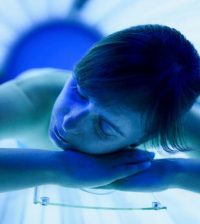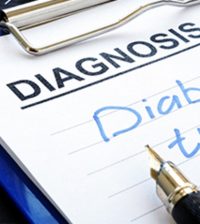- More Data Suggests ‘Ultraprocessed’ Foods Can Shorten Your Life
- Colon Cancer Cases Rising Sharply Among Children, Teens
- Eating Disorders Common in People With Type 1 Diabetes
- Can Zinc Really Shorten a Cold?
- Neuropathy Nerve Damage Often Goes Undiagnosed
- Tobacco Plus Weed in Pregnancy Could Be Lethal Combo for Baby
- Spinal Cord ‘Wraparound’ Device Could Help Treat Paralysis
- How Long Does Marijuana THC Linger in Breast Milk?
- Stomach-Zapping Procedure Lowers Appetite to Help With Weight Loss
- Dogs Brought to U.S. Must Be Microchipped, Older Than 6 Months: CDC
Start Sleep Drug Lunesta at Lower Dose for Safety, FDA Says


Some users of the popular sleep medicine Lunesta remain too drowsy for safety during the day, and the recommended starting dose for the medicine should be lowered, the U.S. Food and Drug Administration said on Thursday.
In a statement, the agency said it took the action due to studies showing that levels of Lunesta (eszopiclone) in some patients may remain high enough in the morning to interfere with driving and other activities that require them to be mentally alert.
This impairment can occur even if patients feel fully awake, the FDA said.
“To help ensure patient safety, health care professionals should prescribe, and patients should take, the lowest dose of a sleep medicine that effectively treats their insomnia,” Dr. Ellis Unger, director of the Office of Drug Evaluation I in the FDA’s Center for Drug Evaluation and Research, said in the FDA news release.
The recommended starting dose of Lunesta — taken at bedtime — has been reduced from 2 milligrams (mg) to 1 mg for both women and men, which means that less of the drug will remain in the body the next morning.
The dose can be increased to 2 mg or 3 mg if needed, but those higher doses are more likely to reduce alertness the next morning, the FDA noted.
The agency advised that patients who are currently taking 2-mg or 3-mg doses of Lunesta discuss the issue with their doctor, deciding on how to keep taking the drug safely and at a dose that best suits them.
One of the studies cited by the FDA included 91 healthy adults, aged 25 to 40. It found that currently recommended doses of Lunesta could hamper driving skills, memory and coordination for as long as 11 hours after taking the drug. Despite these effects, patients often did not realize they were impaired.
Prescribing information on Lunesta’s label will be changed, and the same changes must be made to the labels of generic versions of eszopiclone, the FDA said. The agency also wants doctors to caution patients taking Lunesta about the risk of impaired alertness the next morning.
Next-day drowsiness is a common side effect of all insomnia drugs, the FDA noted.
In 2013, the agency ordered a dose reduction for sleep drugs with the active ingredient zolpidem, such as Ambien and Ambien CR.
More information
The U.S. National Library of Medicine has more about insomnia.
Source: HealthDay
Copyright © 2024 HealthDay. All rights reserved.










